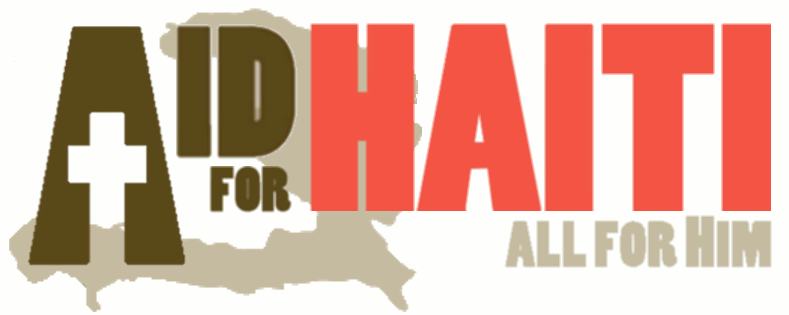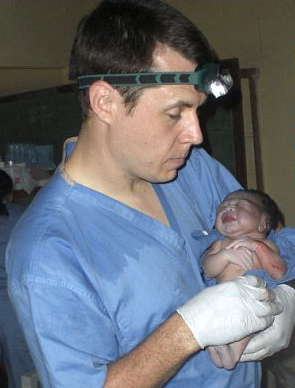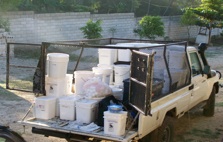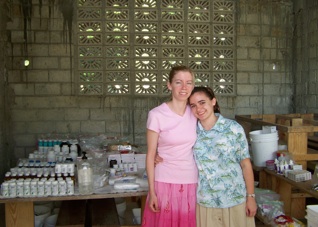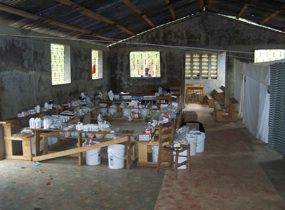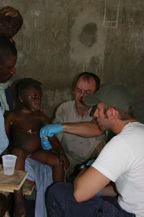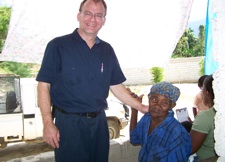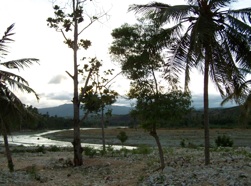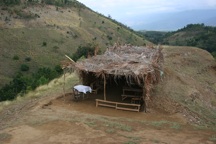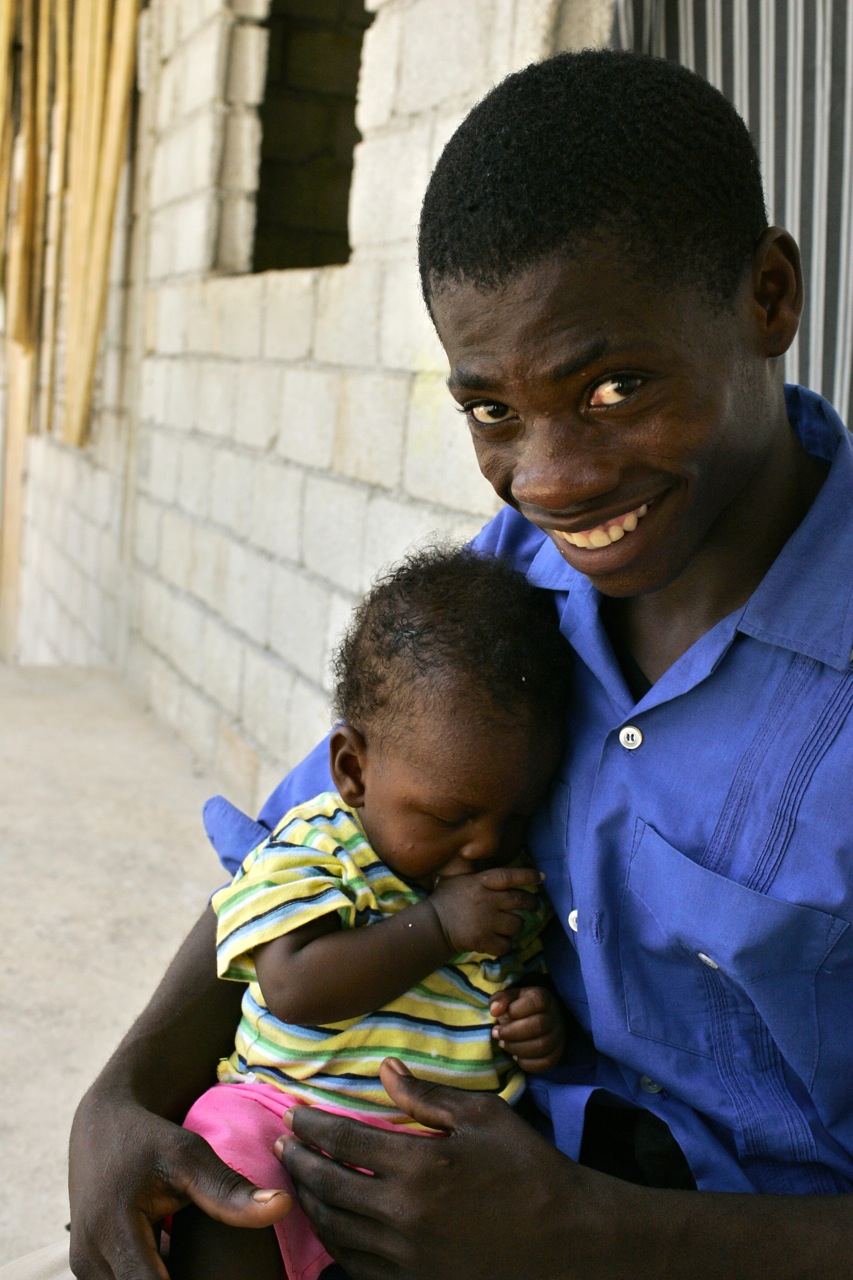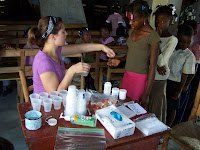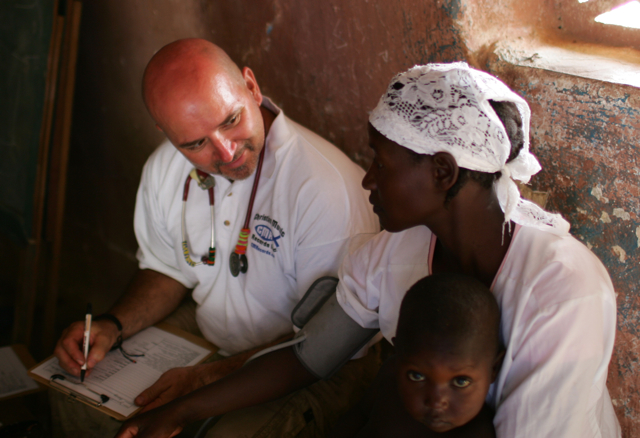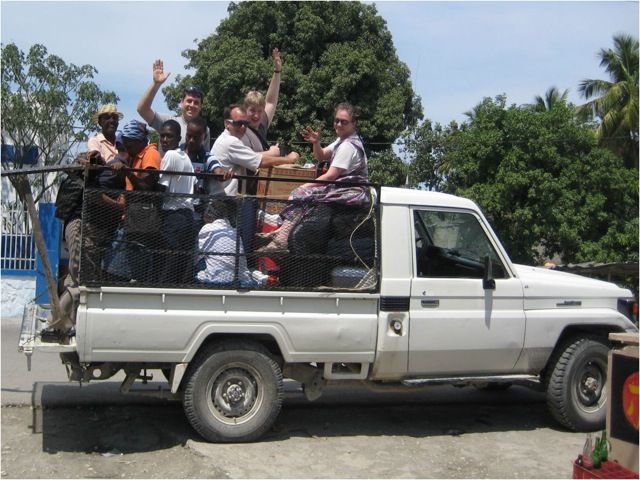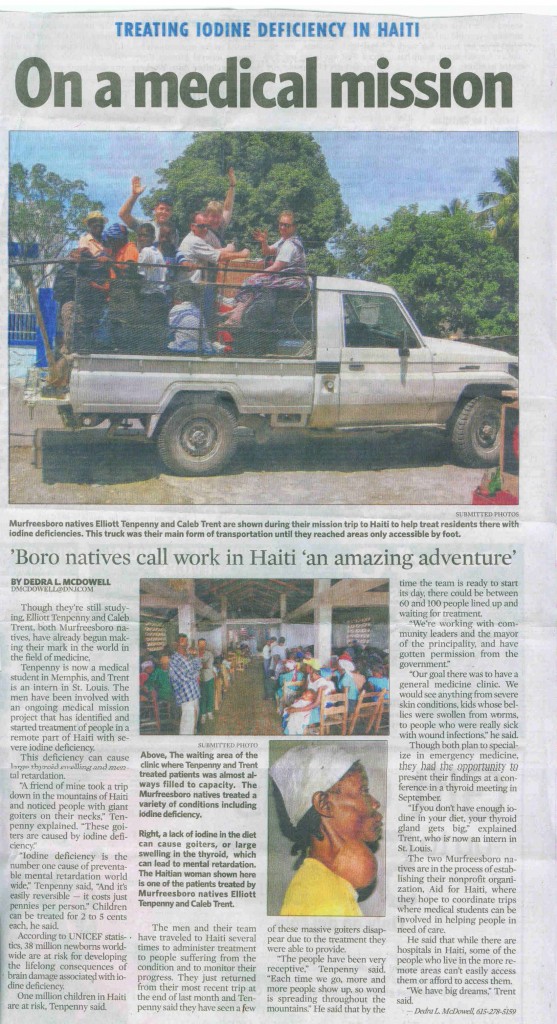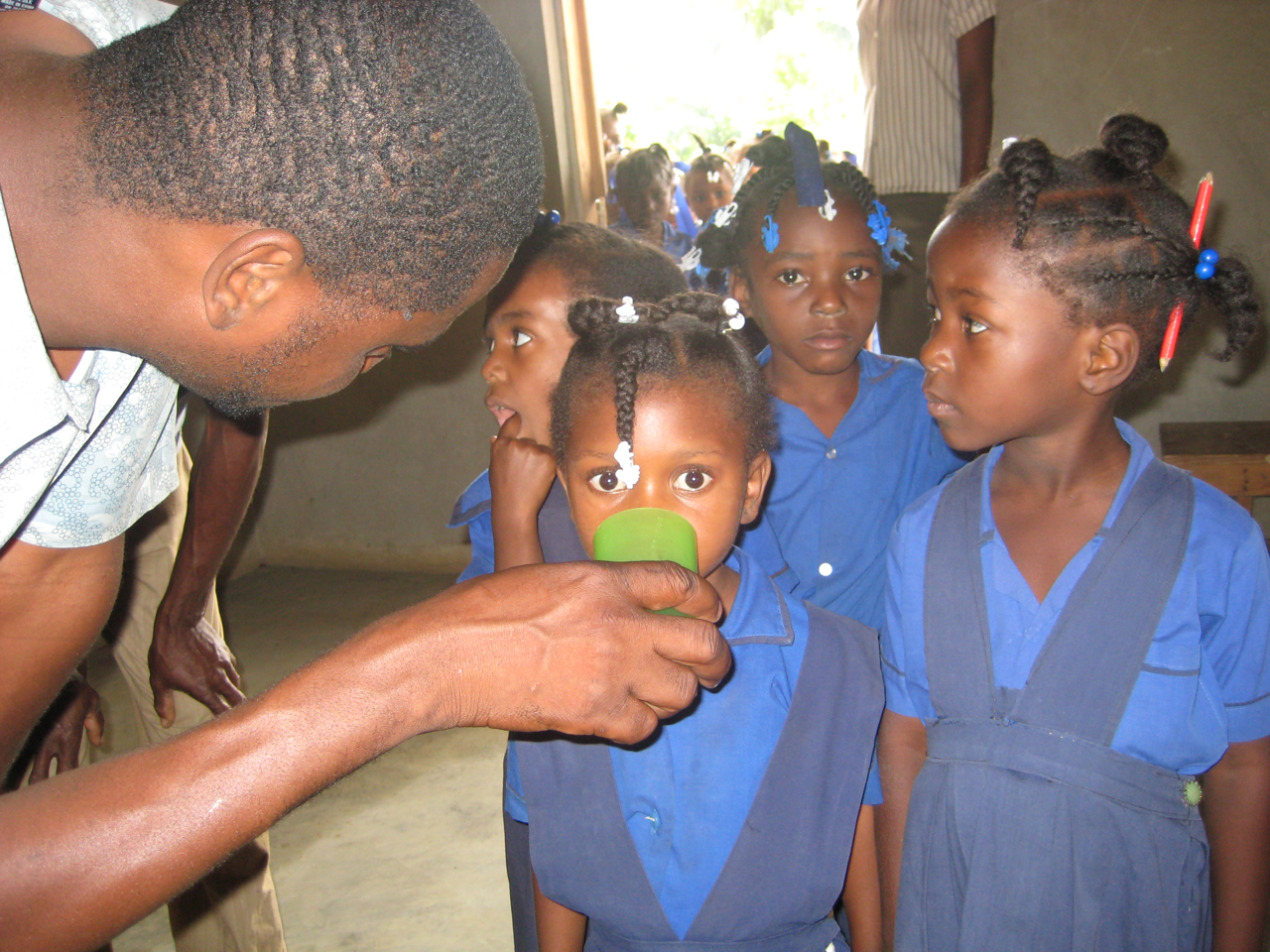
Haiti- March 2010
Having been to Haiti previously I was not quite sure what to expect post- earthquake. The first change I noticed was when I arrived in the Nashville, International Airport. There was an aid group checking in that had a “mountain” of totes that were on their way to Port-Au-Prince. The entire trip down I met people along the way that were bound for Haiti. It was encouraging to see other NGOs putting so much into the relief efforts. Once I arrived, it was interesting to see who was really getting the work done. Not to fault the efforts of large organizations, but many of them seem to have gotten hung up in “red tape”, and many of them were stuck in the immediate area around the capitol. Upon arriving at the PAP airport we were shuttled from the plane to a large new warehouse structure where we picked up our baggage and worked our way through customs. Outside we found the driver that was to take us to Petit Goave, where we would be working on the Wesleyan Compound at our clinic. After fighting the traffic and the heat in Port-Au-Prince we spent the next several hours driving through the countryside. Along the way we saw evidence of the devastation. At one place there were the ruins of a four story building, now flattened like a stack of pancakes to a height of less than six feet. All along the way, the road was unexpectedly broken by cracks and fissures. The area of Petit Goave where our clinic was set up is nearby the ocean. That whole section of the town had shifted in the quake and dropped several feet. Every street going into the area had several places where they had to dump dirt to form a ramp to smooth out the drop off. The Wesleyan Compound was beautiful with its location by the ocean facilitating a cool breeze off the water. The building that we were using for our clinic was mainly being used for a pharmacy, with one end set up for OB and neonatal care. Surrounding the clinic building was an assortment of canopies, tarps and benches where we treated patients. We also had one wooden outbuilding that The U.S. Marines built us, which we were using as an ICU for patients that needed more than walk-in and walk-out care. After we dropped our luggage in the various tents where we were to sleep, we quickly got started helping with the patient load. The first several days passed with a flurry of activity. Emergencies and mothers coming in to deliver their babies continued 24 hours a day. The first evening there we devised a plan of primary and secondary OB and trauma teams to manage through the nights that would allow for those who were already there to get some much needed rest. Being an EMT-IV, I was assigned to Trauma team 1. The first night we spent most of the night taking care of various injuries that came in. Over the next several nights we had motor vehicle accident injuries, a gunshot wound (the result of a “cited” intervention by the police in a robbery???), a security guard who was assaulted with a machete, and various other trauma cases. Following the earthquake our clinic was providing the only medical care to the area. The Notre Dame hospital in Petit Goave had stopped operations for a number of weeks due to staffing problems and other issues. One of the goals for our time there was to gradually shift the medical care back over to the hospital without overwhelming them with a sudden transfer of all fields of patient care. One area of care that we were providing was OB and delivery. Several nights we had 2 or 3 mothers walking the compound between contractions, waiting for imminent delivery. There were so many deliveries that everyone got to assist in as many as they cared to and there were still plenty more to deliver. We had many patients for whom we provided the best care we had available and prayed for them, trusting the healing power of God. There were several cases in which it was very obvious that it was the healing hand of God that made them well. One of those cases was a young girl that presented with cerebral malaria. She came in already in the coma stage of the disease. At this point it is very critical to get IV treatment started immediately. We were able to get an IV started and started the medication. The problem was that we were not sure if she had been brought to us soon enough for the treatment to take effect before it was too late. We spent hours praying over her and finally she became responsive and definitely took a turn for the better. We cared for her through the night and the next morning she was well enough to go home. Even though we spent many nights with very little sleep, God gave us the strength to continue in our efforts and we were able to help many people. By the end of our time there we had accomplished a complete shift of all aspects of the local medical care except OB and some of the nighttime emergencies. These were to continue to be phased out over the next several weeks until the hospital was able to handle everything. We were blessed by many volunteers that worked alongside us in our efforts, and also with monetary support that was and still is a vital need to our continued ministry. Also as we were shifting the care back to the local hospital, we were preparing to move to a new location several kilometers away in the small town of La’Cule. We spent hours sorting through our supplies, packing them in boxes, and trucking them to the new location. Our work continues there as we provide medical care to that location and also use it as a base for our mobile clinic. We continue to make trips into the mountains, taking along our buckets filled with meds and hiking, sometimes several hours, to reach the remote villages. We treasure each of your prayers and other support in any way God lays it on your heart to help. We recognize that even our best efforts without the blessing of God and the support of His people would amount to very little. Please continue to pray for the work in Haiti, that God would continue to give us guidance in directing us to the areas where we are most needed. Also that God would continue to work in the hearts of the people as we share the good news of the Gospel, that souls would be saved and that the power of Satan would be vanquished across the country of Haiti.
